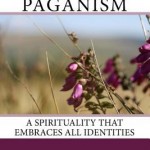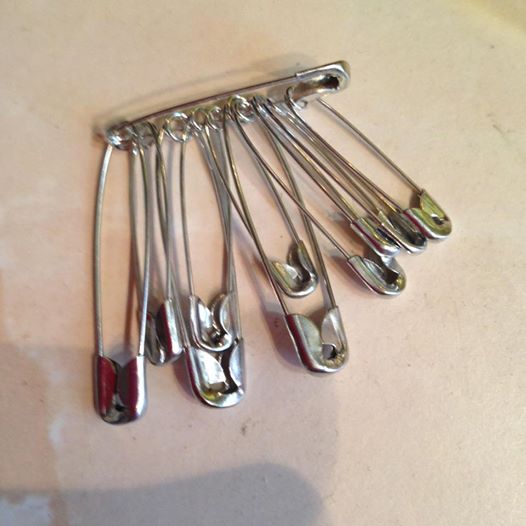As Pagans, what do we hope to build?
Much of the current dialogue in the Pagan blogosphere is about carving out ways to explain and justify our personal experiences and beliefs in relation to other traditions, but without a clear vision of the place our own traditions and experiences might have in an ideal world. Will the Pagan movement become one tradition-heavy set of religions with several “fringes”? Will it split apart into competing factions? Or will we find a way to unite using some shared cultural language? What institutions will we build, or will we build institutions at all? What rights or recognition will we have in the larger society?
What does your Paganism look like in 50 years?
~ Christine Hoff Kraemer

I have entitled this post “If you build it, they will come” because the kind of people who will join the Pagan movement of the future will be determined by the kinds of structures and traditions that we build now. If we build traditions and institutions that empower and enable people to develop and grow, then we will attract people who want that; if we build inclusive traditions where diversity is welcome, we will attract a wide range of people.
Unity and diversity
I have written about the issue of unity and diversity before (in The Pagan umbrella is leaking and The varieties of religious experience) and so has Christine (in Three Legs on the Pagan Cauldron, or Must Pagans Be Polytheists?)
There are some key themes that unite Pagans and polytheists of various flavours, but we don’t have to agree on absolutely everything – where would be the need for different traditions if we agreed on everything? Not all Pagans agree that the environment is of paramount importance – but many do; those of us who do can work together on that issue. Other issues on which many Pagans agree (but not all) would be LGBT rights, reproductive rights, and freedom of religion. We might come together to work on projects around these issues, or we might participate in secular projects to further these aims; however, I do think it is worth bringing Pagan perspectives to the table on these issues, as we often have a different perspective that might be helpful.
In the future, I think that each of the current traditions might be strong and numerous enough to stand alone and only work with other Pagans and polytheists on selected projects. I don’t think that time has arrived yet. I think we still need “big tent Paganism”. Those who don’t feel that we need it are of course entitled to their views, and to start building strong independent organisations for their particular path. There is room for more than one approach.
Building institutions
I would like to see visible Pagan temples and sanctuaries (we currently have only one in the UK – I know there are several in the USA). I don’t want to see building committees running these (because committees are the fastest way to kill spirituality), but I hope that they could be administered fairly and for all Pagans to use. I would also hope that all Pagans would use them responsibly. Many people say they don’t need a temple for their spiritual practices; however, practicising ritual as a group requires ritual space, and the weather is not going to be getting any better over the next few decades.
It would be difficult and expensive to get a permanent Pagan temple, and it would be difficult to know where the first one should be situated. So I had an idea: the Pop-up Pagan Temple. It could be a yurt that is available for hire to Pagan groups around the country or region, to put up in parks (having agreed this with the local council). Clearly it would need security to protect it, but it would not be up for more than a week in any one place, so the cost of that would not be prohibitive.
I am ambivalent about the notion of professional Pagan ministry. I think that a more educated community is a very good thing, and I very much applaud what Cherry Hill Seminary are doing. I am not sure that I want to see a clergy and congregation model developing. We need to think very hard about the dependencies created by the congregational model, and what gets projected onto ministers and leaders. However, many Pagan leaders put in a lot of unpaid hard work, and it would be good to see that acknowledged and fairly recompensed. It is a tricky issue, and one that the Pagan community needs to start discussing.
One very important institution is the Pagan Newswire Collective, a group of people dedicated to improving news coverage of Pagan issues and events. The Wild Hunt blog is also a very important resource.
Another vital organisation is Cherry Hill Seminary, which educates Pagan clergy in ritual, theology, practice, and ministry. We need a similar project in the UK.
The Centre for Pagan Studies in the UK is doing a great job at getting public recognition for Paganism. They have put up a blue plaque for Doreen Valiente (the first blue plaque to a Pagan, and the first on a council-owned residential building); and they will be putting up a blue plaque for Gerald Gardner on 13 June 2014.
Pagan organisations are also important (and too numerous to mention them all by name). I would like to see more co-operation and dialogue between different Pagan organisations. The main one in the UK is the Pagan Federation. Pagan Federation International is also doing sterling work to help fledgling Pagan movements in other countries.
Rights and recognition
I would like to see Pagan weddings become legally recognised in England and Wales. I would like to be able to practice Pagan rituals in public without fear of harassment. I would like to see public bodies acknowledging Pagan holidays in listings of holidays both secular and religious. (In the UK, many employers send round lists of holidays from various faiths, but Pagan holidays are often not listed.) I would like to see a Pagan student society in every UK university, and a Pagan temple accessible to every Pagan who wants it. I would like to see Pagan traditions covered in education about religion (not indoctrinating children into it, just teaching them the facts about it). I would like Pagan traditions to be full participants in interfaith councils and bodies.
Paganism in 50 years’ time
I want to see a diverse, vibrant, and non-dogmatic group of polytheistic, pantheistic, and animist religions, firmly grounded and confident in our theology and practice, all having equal space in the ‘big tent’, and even more inclusive of gender and sexual diversity than they are now; a world where Pagan contributions to public debates are valued and respected; a world where it is safe for all Pagans to be open about being a Pagan.
















